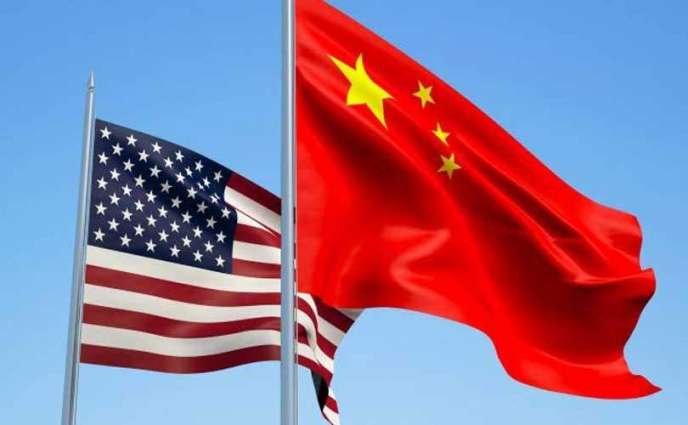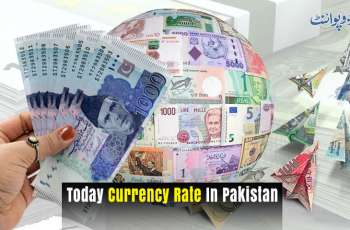Despite facing the headwind of slowing domestic economic growth, China is unlikely to offer more concessions to the United States in bilateral trade negotiations as Chinese people have a lot more experiences in handling economic difficulties, experts told Sputnik
MOSCOW (Pakistan Point News / Sputnik - 15th July, 2019) Despite facing the headwind of slowing domestic economic growth, China is unlikely to offer more concessions to the United States in bilateral trade negotiations as Chinese people have a lot more experiences in handling economic difficulties, experts told Sputnik.China's economy expanded 6.3 percent year-on-year in the first half of this year, the country's National Bureau of Statistics (NBS) said in a regular report on domestic economic growth on Monday. Amid escalating trade frictions with the United States, the country's GDP only grew by 6.2 percent year-on-year in the second quarter, the slowest pace in at least 27 years since quarterly economic data became available in 1992.
While negotiators from both countries continue to work on a possible trade deal, US President Donald Trump's administration has slapped 25 percent tariffs on Chinese goods valued at about $250 billion. Following the meeting between Chinese President Xi Jinping and US President Donald Trump at the G20 summit in Japan last month, the United States has agreed to suspend plans to introduce 25 percent tariffs on $300 billion worth of Chinese goods, which could make all of Chinese exports face steep tariffs when entering the US market.
As China's export oriented economy continues to face negative impact from steep US tariffs, Beijing is unlikely to offer additional concessions in ongoing bilateral trade negotiations with the United States, because Chinese people are well prepared to deal with possible economic difficulties as they had experienced a lot worse conditions before the rapid economic growth in recent decades, Chinese academics told Sputnik.
"Under the current conditions, we may have to live through a few years of economic difficulties. But it's not like we haven't experienced such difficulties before. We have lived through a much longer period of economic difficulties compared to the United States. We went through more than 150 years of miseries, not to mention just a few years. How many years does Trump have left? At most, it'll be just five more years," Zhao Xijun, a finance professor with Renmin University of China in Beijing, told Sputnik.
The two Opium Wars during the mid-19th century have often been viewed as the beginning of a period of China's suffering at the hands of foreign imperialists, which has been labeled as "the century of humiliation" by Chinese authorities. In the early years of the Chinese Communist Party's (CCP) rule in China before economic reforms in 1978, the country also experienced a lot of economic difficulties because of policy mishaps such as the Great Leap Forward or the Cultural Revolution.
In his book titled "Tombstone" on the Great Chinese Famine during the Great Leap Forward between 1958 and 1962, Yang Jisheng, a senior Chinese journalist, estimated that about 36 million people died during that period.
During the press conference releasing China's latest economic data on Monday, Mao Shengyong, a spokesman of China's NBS, said the 6.3 percent GDP growth in the first half of 2019 had laid down a solid foundation for the nation to reach the 6.0-6.5 percent annual GDP growth target at the end of this year.
Zhao, the Beijing-based scholar, suggested that Chinese authorities should focus on protecting people's living standards and ensuring social stability, even if the nation's GDP growth misses the official target.
"As the ruling party, the CCP has to ensure everyone can live happily and make a good living. This is very important. As the United States can introduce steep tariffs on $300 billion worth of Chinese goods at any time, it's better for us to be prepared to make it through even if the additional tariffs will be implemented. We don't have to reach the six percent GDP growth target, but we have to make sure people's living standards not drop, maintain the employment level and ensure social stability," he said.
The expert added that even if China offered additional concessions in bilateral trade talks with the United States, the Trump administration may not be easily satisfied.
"As this is a trade negotiation, it has to go both ways. For China to make concessions unilaterally, the United States could make higher demands. It's not like after China takes a step back, the United States would agree to it easily. The US side is just trying to squeeze more benefits from China. The United States will not all of a sudden become more understanding and kind in the trade talks, as soon as China offers some concessions," he said.
According to the latest data from China's NBS, the nation's total exports rose by 6.1 percent year-on-year to 7,952.1 billion Yuan (about $1,156.7 billion) in the first half of 2019, while posting a trade surplus of 1,236.6 billion yuan during the same period, up 41.6 percent from the previous year.
However, Chinese economists pointed out that the country's expanding trade surplus in the first half of 2019 was caused by slowing imports rather than rapidly expanding exports.
"China's trade surplus actually expanded in the first half of this year. But this growth in trade surplus is caused by weak demand in imports. As the imports slowed much faster, the trade surplus appeared to be growing. This kind of weak demand in imports is a good indicator of weak domestic demand in the Chinese economy," Shen Xinfeng, chief analyst of macroeconomics at Northeast Securities, told Sputnik.
The official figures from the NBS showed that China's imports grew by only 1.4 percent year-on-year to 6,715.5 billion yuan during the first half of 2019.
The economist explained that negative impact from trade frictions with the United States, such as causing weak domestic demand, was the biggest contributor to China's weak economic growth in the second quarter.
"We believe the weak domestic demand is the biggest factor that contributed to the weak GDP growth in China in the second quarter. If $300 billion worth of Chinese goods will also face steep tariffs, the impact will be felt much stronger. When we talk about weak domestic demand in China, it also includes investments, especially in the manufacturing sector. The investment in the manufacturing sector in China was very weak in the second quarter, almost reaching a level of historic low. The trade war definitely hurt the confidence of enterprises in the manufacturing sector," she said.
Despite policies from Chinese authorities to assist manufacturers, such as offering discounts on taxation, it may not be enough to restore the confidence of Chinese manufacturers as external demands for their products remain lackluster, the economist warned.
"In China's manufacturing sector, about 90 percent are private companies. It's obvious that the central government has tried to improve the financing environment for those private companies, while offering discounts on taxation. All those measures can only offer positive signs from a policy perspective. But in terms of demand, if the global economy is sluggish with an ongoing trade war, the private Chinese manufacturers may not want to boost their production, despite all those policy incentives. It's difficult to see strong results in the manufacturing sector because of policy stimulus," she said.
As the economic competition between China and the United States is likely to intensify even if both sides reach a trade deal, it is inevitable for the Chinese government to adjust its annual economic growth target to a lower rate in the future, Shen added.
Nevertheless, the economist suggested that slowed economic growth could offer Chinese authorities a good chance to rebalance the wealth distribution system in the country and allow ordinary people to take a larger share from the economic growth, as the average income growth was much slower than the nation's economic growth during the period of high annual GDP growth.




